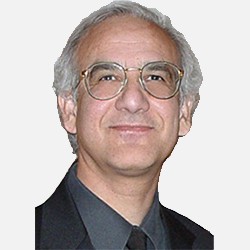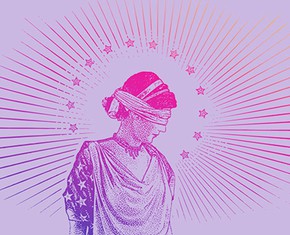The views expressed in our content reflect individual perspectives and do not represent the authoritative views of the Baha'i Faith.
The Baha’i teachings say that the present nationalistic model of social, economic, and political organization is grossly inadequate.
Humanity has become a single interdependent organism, and new global challenges like the threat of nuclear war, the pollution of the environment, disease, climate change and widespread hunger require an international method of problem solving. However, at one level Baha’u’llah and Abdu’l-Baha are not opposed to nationalism.
The Baha’i teachings say that nationalism will continue to be an important element of humanity’s social organization—but will no longer be the exclusive and dominant one. Instead, Baha’u’llah and Abdu’l-Baha suggested a combination of both decentralization towards local initiatives; along with globalization towards international agreements, cooperation and structures as necessary at this stage of human development. This Baha’i model of an emerging global civilization—which originally coined the phrase “unity in diversity”—recommends a federalized model of international governance, in much the same way that modern nations incorporate individual states under the umbrella of their social organization.
Right now, in the first few decades of the 21st century, it is really neither social class, nor race, nor sex, nor religious affiliation, nor ethnicity which is the most important source of social inequality and injustice in the world. Sociologists and philosophers so far have concentrated on these secondary causes of social inequality and oppression, and have ignored the most important factor. Whether it is Marxist, liberalist, or functionalist theory, the question of liberation has been sought in terms of secondary questions. What is the most determinant of the life chances of individuals in our planet is indeed citizenship.

The simple accident of your place of birth now determines your rights, opportunities, prospects for prosperity, education, income, occupation, and health. This immoral and senseless structure ensures that children are systematically discriminated against in terms of their national citizenship, their opportunities in life and even their life itself. Surprisingly, we take such a profoundly arbitrary and inhumane form of oppression and injustice for granted. Philosophers and sociologists accept it as natural and just.
The Baha’i teachings and their new concept of development and modernity reject this immoral pattern of social discrimination and inequality. Precisely for this reason, both Baha’u’llah and Abdu’l-Baha called for a global approach to the question of social development. Abdu’l-Baha’s vision of world development is one in which oppressive imperialistic nationalism is replaced by consultative, democratic, and universalistic pattern of cooperation and equality among nations. That vision was and remains truly revolutionary—a revolution rooted in love and not hatred:
Should this greatest of all remedies be applied to the sick body of the world, it will assuredly recover from its ills and will remain eternally safe and secure.
Observe that if such a happy situation be forthcoming, no government would need continually to pile up the weapons of war, nor feel itself obliged to produce ever new military weapons with which to conquer the human race. A small force for the purposes of internal security, the correction of criminal and disorderly elements and the prevention of local disturbances, would be required—no more. In this way the entire population would, first of all, be relieved of the crushing burden of expenditure currently imposed for military purposes, and secondly, great numbers of people would cease to devote their time to the continual devising of new weapons of destruction—those testimonials of greed and bloodthirstiness, so inconsistent with the gift of life—and would instead bend their efforts to the production of whatever will foster human existence and peace and well-being, and would become the cause of universal development and prosperity. Then every nation on earth will reign in honor, and every people will be cradled in tranquillity and content. – Abdu’l-Baha, The Secret of Divine Civilization, pp. 64-66.
Having investigated Abdu’l-Baha’s The Secret of Divine Civilization, we can now understand that in fact Abdu’l-Baha’s concepts of modernity and development are elaborations of Baha’u’llah’s creative, prophetic vision. Baha’u’llah understood that social development requires a process of rationalization in which both instrumental rationality and moral rationality are combined and affirmed in the life of humanity. Baha’is believe that such a multi-dimensional rationalization must take a global orientation as well. This unique model transcends and solves the antinomies between opposing one-sided approaches. It affirms the sanctity of religious truth and guidance, but at the same time adopts a progressive, modern and non-traditionalistic outlook.
The Baha’i teachings view both religion and science as historically dynamic and progressive forces, which means that both science and revelation go through historical change and development. Both religious truth and scientific truth are relative to their times, and both progress in terms of the needs of an ever-advancing humanity. Baha’is define modernity and development in terms of the harmony of these twin progressive forces.
This complex concept of rationalization is already entailed in Baha’u’llah’s vision of the coming of age of humanity. Baha’u’llah identifies milestones for his concept of the maturation of humanity, including the changing attitude towards power and domination, and the emergence of a world auxiliary language. The first implies that the culture of violence and aggression will be replaced by a culture of love and service; and the second implies the emergence of global structures and sensibilities.
If you look for it, you can easily see the complex notion of reason and rationalization in Baha’u’llah’s writings. It implies the progressive movement of all humanity towards efficiency, unity, communication, and love. Western accomplishments in the realm of science and instrumental reason are not accompanied by either moral rationalization or global orientation. The result is immoderation, even in material civilization. Authentic development and true modernity require a qualitatively different form of rationalization.
Baha’u’llah and Abdu’l-Baha offered this unique, multi-dimensional, and creative vision to humanity for our benefit. Although revealed in their writings in the 19th century, the Baha’i message remains creative far beyond the boundaries of that time—and for that reason, we can begin to understand why The Secret of Divine Civilization is a text for all seasons, devoted to the crucial question of the development of human society in both the East and the West.
You May Also Like
Comments

















- Tablet of Bahá'u'lláh to Queen Victoria (my emphasis).
compiled by Research Department of the Universal House of Justice. published in Compilation of Compilations, Volume 2, pages 151-200
1991
"On the other hand, every country must be properly delimited, its exact frontiers marked, its national integrity secured, its permanent independence protected, and its vital interests honoured by the family of nations."
I believe the best cure for the situation lies within the scope of the functional application of the Baha'i Administrative Order within the Baha'i communities in preparing our community ...members to be functional Baha'i citizens according to the writings. It is our greatest gift to the world.
Shoghi Effendi: "Nation-building has come to an end. The anarchy inherent in state sovereignty is moving towards a climax. A world, growing to maturity, must abandon this fetish, recognize the oneness and wholeness of human relationships, and establish once for all the machinery that can best incarnate this fundamental principle of its ...life."
Even though it is not possible now to establish a global system of world citizenship, we can still adopt a moral ...posture of world citizenship in our words and actions. That can help create the basis for the kind of world order that Baha'u'llah described.